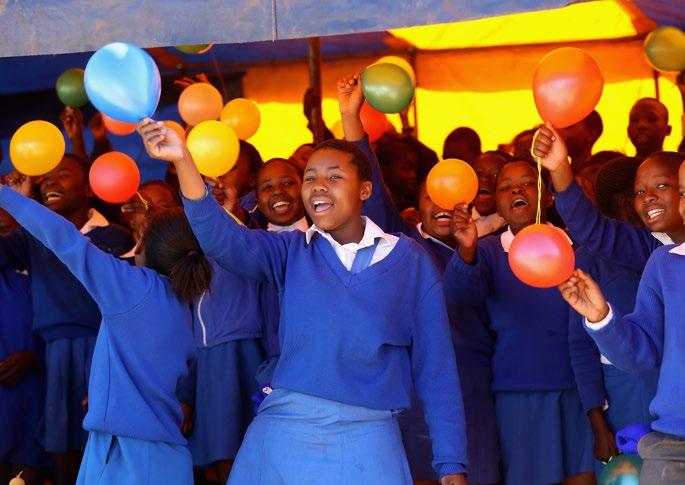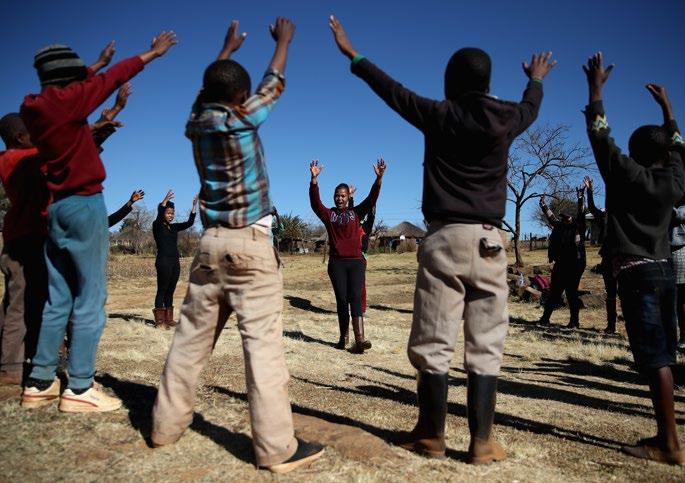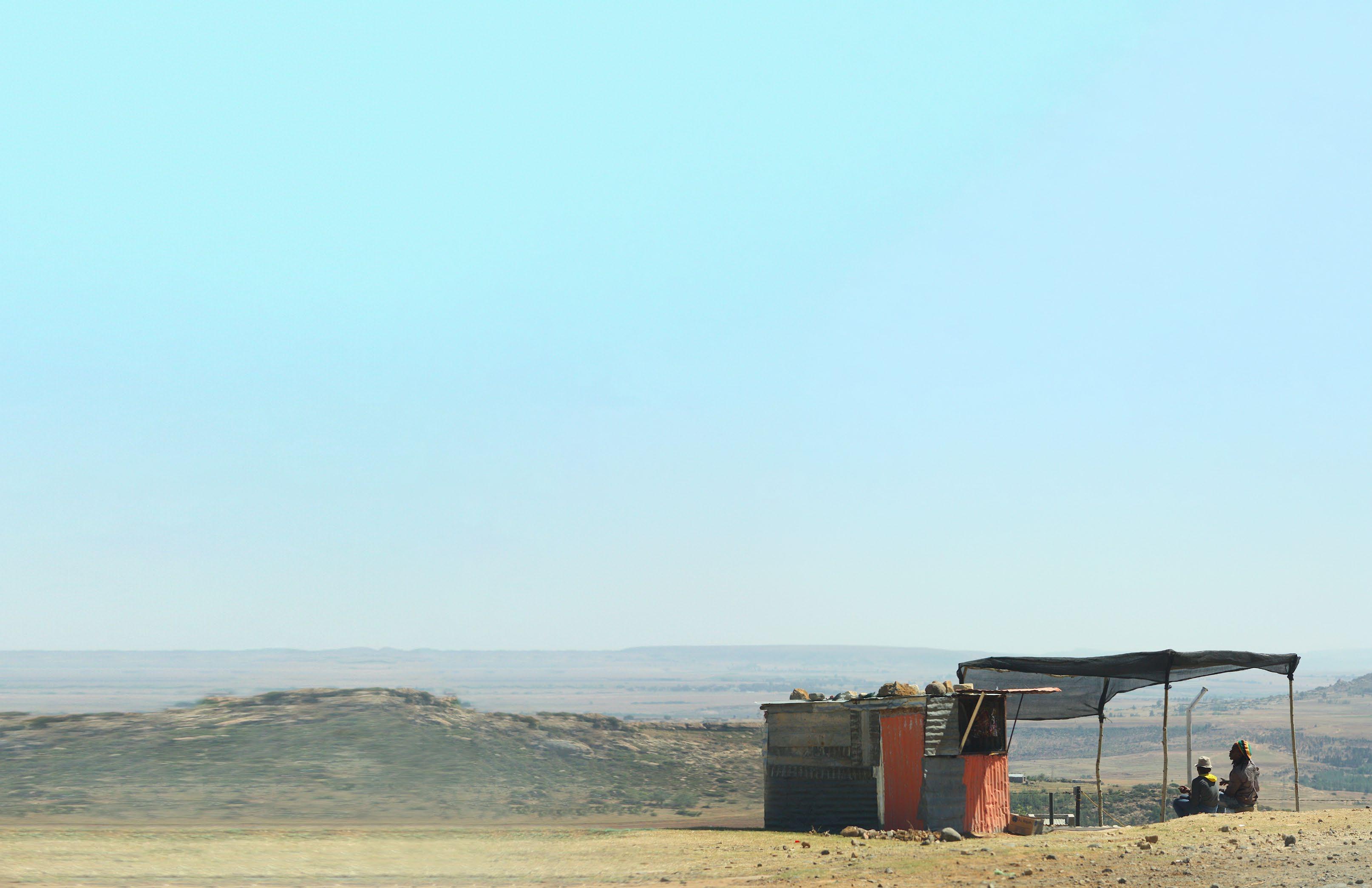
5 minute read
Founding Patrons’ Foreword
by Sentebale
OUR STRATEGY OUR WORK
Our new five-year strategy is being rolled out. However, due to Covid-19, we continue to review and adapt our ways of working to respond to the immediate impact of the pandemic on the communities we serve. Sentebale’s strategy focuses on four overarching objectives which provide support and awareness, enable advocacy, and promote empowerment for children and young people.
Advertisement
Sentebale’s experience of working with children and young people over the last 16 years in Southern Africa has provided a deep insight into their needs and expectations. We know that the starting point for our work and any successful response must be grounded in their reality and informed by their own expressed needs, desires, and ambitions. In particular, we believe that a multi-sectoral approach to HIV that tackles both the symptoms and root causes, is critical for success and sustainability.
WHAT CHILDREN & YOUNG PEOPLE WANT The children and young people who participate in our programmes have articulated what a good quality of life would mean for them. They say they want to feel valued, happy and hopeful about their futures. They want to feel self-confident and to be able to make informed choices about how to lead their lives.
WHO WE WORK WITH
Sentebale works with vulnerable children and young people in Southern Africa helping them to access vital health services, receive care and support, and build skills to be more resilient and self-sufficient.
Sentebale aims to reach children and young people living with or affected by HIV, especially the most vulnerable who are additionally challenged by issues of deprivation, exploitation, abuse, and/or neglect. They may also be disadvantaged or marginalised due to mental health issues, sexual and gender-based violence, alcohol or substance abuse, sexual orientation, stigma, and other challenges that affect their health and wellbeing.
HEALTH & WELLBEING We strengthen the social and emotional wellbeing of the most vulnerable children and young people living with, or at risk of HIV by addressing their basic mental health with psychosocial support, information sharing and providing access to youth-friendly health services.
NURTURING COMMUNITIES We work with local and national partners to provide health and social services for children and young people in a friendly, safe environment.
YOUTH ADVOCACY We believe young people should shape their own future and be given the opportunity to advocate for improved health, education and social protection.
EDUCATION & LIVELIHOODS We work with young people so they are more resilient, self-confident and empowered members of their communities.
HOW & WHERE WE WORK
We work directly with communities and partners in Lesotho and Botswana and our aim is to build strong, high-quality, nationally-led programmes that are resilient and self-sufficient.
We create wider impact through sharing insights and experiences, convening and working with likeminded organisations – across the Southern Africa region – and through global advocacy. Our offices in Lesotho and Botswana lead on national programme delivery, local advocacy, communications and fundraising. Our UK office leads on global fundraising, advocacy and overall governance and support.

THE IMPACT OF COVID-19
ANNA MOKGETHI
MINISTER OF NATIONALITY, IMMIGRATION & GENDER AFFAIRS IN BOTSWANA, NOVEMBER 2021
MOKGETHI
2021 CHILDREN & YOUNG PEOPLE

All around the world Covid-19 has impacted many individuals, organisations and communities leading to major socioeconomic challenges, which will have repercussions for years to come. In Lesotho and Botswana, the compounding effect of two global pandemics – HIV and Covid-19 - has exacerbated the burden and suffering facing some of the most vulnerable members of society. With Covid-19 restrictions in place for much of the reporting year, anecdotal evidence provided by Sentebale’s programme teams and schools we work with highlighted the growing inequalities facing children and young people across Lesotho and Botswana.
We have seen an increase of children dropping out of school, loss of jobs and increased poverty, a lack of food available and a decrease in adherence to antiretroviral medication. There has been a rise in teenage pregnancy rates and a high level of gender-based violence cases with people feeling disconnected from family, friends, and services. Our Let Youth Lead advocates, who have remained a pillar of support to their peers through radio shows, WhatsApp, and social media have reported a rise in anxiety and mental health issues.
HOW COVID-19 IMPACTED OUR WORK
Sentebale’s ability to deliver work in our conventional programme model – most importantly face-to-face meetings with young people and communities was stopped as Covid restrictions limited movement and social gatherings. In some programme areas, such as our camps and clubs programme for children and young people living with HIV, this led to temporary suspensions of some activities. Innovative methods for responding to the challenges of Covid-19 were adopted so we could deliver programmes virtually, for instance, with phone calls to children, text and WhatsApp messages to young people and their carers, and increased radio programming. Where access to antiretroviral medication and PrEP was challenged with movement restrictions in place, we worked with authorities to arrange transport and travel permits so children could collect their medication.
WHAT COVID-19 HAS TAUGHT US
A ‘hybrid’ way of working is possible; mixing face-to-face and virtual programming. This can help us reach more children and young people in remote areas, reduce costs, and increase the capacity of programme staff to provide one-to-one support. At the same time, it has highlighted that some face-to-face engagement is essential, and the ‘human touch’ is vital. A fundamental factor for consideration in virtual programming, is those most in need of our support, are often the most vulnerable and therefore without access to technology and connectivity. It is in this context where we see the inequality divide magnified. In the future, we will consider where we can better utilise technology – including digital media as well as more traditional media such as radio – to deliver our work. Our Let Youth Lead programme has notably experienced more positive changes through this period, with advocates gaining exposure to conferences virtually which may not have been possible.





